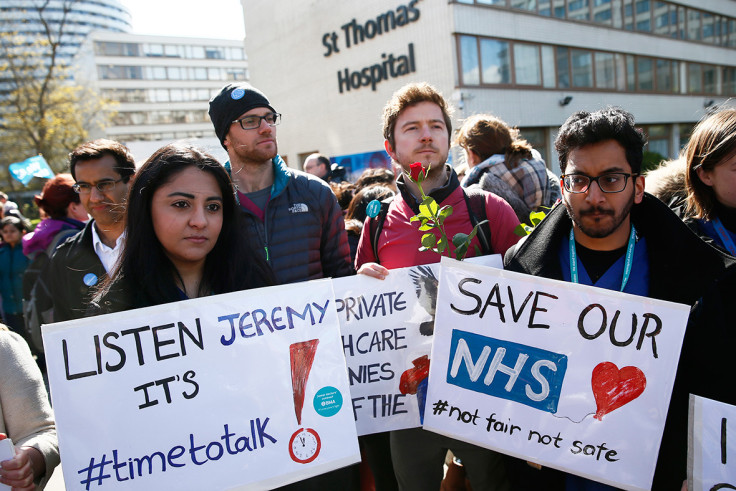BMA agrees to re-enter talks on junior doctor contract

Junior doctor representatives at the British Medical Association (BMA) have agreed to hold talks with the government over a disputed new employment contract. It follows a wave of strikes which saw tens of thousands of operations cancelled after negotiations broke down in February.
Dr Johann Malawana, BMA junior doctor committee chair, said: "The BMA has agreed to re-enter talks with the government on outstanding issues in this dispute, which include, but are not limited to, unsocial hours.
"Junior doctors' concerns extend far beyond pay, and our principle in talks will be to deliver a fair contract that does not discriminate against women or any other group, one which addresses the recruitment and retention crisis in the NHS and which provides the basis for delivering a world-class health service.
"The BMA will also call for any contract offer – agreed or not – to be put to a referendum of junior doctors, as is usual following a contract negotiation.
"We hope that with both parties back around the negotiating table, real progress can now be made to ending this dispute through talks."
A BMA spokeswoman added that they had "repeatedly urged the Government to re-enter talks" and had "agreed to temporarily suspend further industrial action so that talks can resume."
During their most recent two-day walkout Junior doctors stopped providing emergency care for the first time in NHS history, forcing the cancellation of more than 125,000 appointments and operations. It followed four strikes between January and early April which affected routine but not urgent care.
Speaking ahead of the JDC's meeting on 5 May, Health Secretary Jeremy Hunt told Sky News that he wanted written agreement from the JDC that discussions over the issues of Saturday pay and unsocial hours would be held in "good faith".
"I hope the BMA will take up the offer to talk constructively and we're seeking assurances by close of the day on Saturday that the BMA will negotiate constructively on the outstanding issues," he said.
In a separate interview with the BBC, he added: "We've already made three significant compromises on Saturday pay but what we can't do is have a system where hospitals can't afford to roster enough doctors on a Saturday."
The Health Secretary wants to change turn 7am to 5pm on Saturday into a normal working day instead of the current system which deems them "unsocial hours", allowing junior doctors to claim extra pay.
At present, the whole of Saturday and Sunday allow them to claim extra, along with shifts between 7pm and 7am.
Although the government planned to offset this with a rise in basic pay of 13.5%, it proved a sticking point with the BMA and Hunt threatened to impose the new contract, which is due to come into force in August and will still allow premium rates for Saturday evenings and all of Sunday.
© Copyright IBTimes 2024. All rights reserved.





